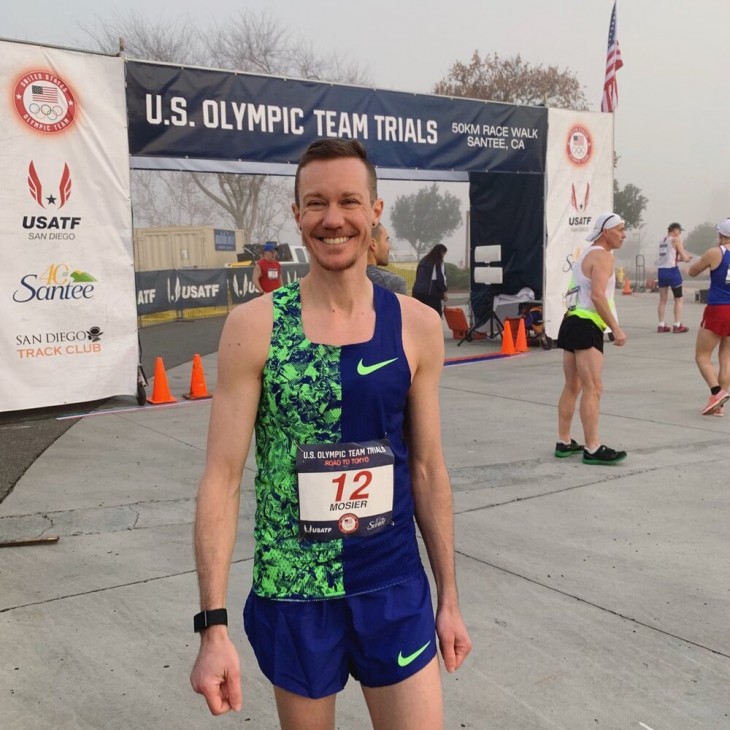Gender Equality
27.12.2021
Understanding new Olympic guidelines for trans athletes

-
Members of the discussion:
-
Last reply:
The International Olympic Committee (IOC) recently released its long anticipated new guidelines concerning transgender and intersex athletes. Rather than set out rules for international and national sports federations to follow, the IOC framework instead proposed that eligibility rules for these athletes follow 10 principles: inclusion, prevention of harm, non-discrimination, fairness, no presumption of advantage, evidence-based approach, primacy of health and bodily autonomy, stakeholder-centered approach, right to privacy and periodic reviews.
This framework replaces the 2015 IOC guidelines that required trans women to lower their testosterone for 12 months before competing in the women’s division. The new framework makes inclusion the first of the guiding principles and drops the testosterone suppression requirements — both substantial shifts for the organization.
The emphasis on inclusion is a welcome contrast to bans of trans females from women’s sports by 10 U.S. states including Texas, and the ban of trans females from the women’s category in international matches by World Rugby.
There are, however, two of the IOC principles that are troublesome. The suggestion that trans women have advantages over cisgender women is not presumptive. On average, trans women are taller, bigger and stronger than cis women and these are advantages in many sports. Advantages, however, are an integral part of sports and there is no evidence that trans women who have undergone testosterone suppression are disproportionately successful in women’s sport. In fact, trans women remain under-represented at all levels of sport; most notably in the NCAA, which first implemented hormone therapy-based eligibility requirements for trans women in 2011.
Another problematic element to the IOC framework lies in the details of the evidence-based approach principle. In this section, the IOC framework proclaims that it is only appropriate to enact eligibility restrictions based on “robust and peer-reviewed research” specific to transgender athletes. It will be at minimum several years and probably decades before such research exists. Sporting federations need eligibility requirements in the present tense. Testosterone-based regulations pertaining to trans women, such as those enacted by World Athletics enable both inclusion for repressed minorities and meaningful sport for all women. Current regulations should be viewed as living documents that will be improved as more and better data are published (the IOC’s 10th principle).
Some have criticized the fact that the IOC framework delegates the final decisions on trans athletes to individual sports federations, suggesting the framework amounts to “passing the buck.“ A closer examination reveals the logic of sport-by-sport regulation. The fact that trans women are taller than cis women is an advantage in basketball, but a disadvantage in gymnastics. The larger frames of trans women hinder them in endurance events but may represent a safety issue in contact sports. Additionally, the IOC has never chosen the athletes who compete in the Olympic Games. That task has always fallen to national and international sports governing policies, and the new IOC framework is merely an explicit acknowledgement of this reality.
The most hyperbolic criticism of the IOC framework is levelled by those who suggest that the new guidelines will hail the “end of elite women’s sport.” Critics of the 2015 IOC transgender guidelines made the same claim. In fact, these sort of doomsday pronouncements were first made 45 years ago when transgender tennis player Renee Richards took to the courts. These claims are as untrue now as they were in 1976. Transgender people probably represent less than 1 percent of humanity and face substantial barriers to sports participation and hence will never overwhelm women’s sport at any level. Moreover, transgender women maintain testosterone and hematocrit levels within the normal female range for health reasons. This is true even for the serious trans athletes that we study at Loughborough University, who would benefit athletically from higher testosterone levels.
It is, however, true that if individual sports were to allow trans women to compete in high-level competitions without lowering testosterone to female levels ,then a few trans athletes would be willing to compete in women’s sport without testosterone suppression.
There are also those who claim that transgender inclusion will lead to men masquerading as women to gain sports glory. This fear of male imposters in women’s sports first surfaced in the 1930s and has been repeated numerous times in the intervening 90 years. And yet, in all these years, there is no evidence that it has ever happened.
At this point, it is unclear how many sports will adopt the IOC framework. World Athletics has no plans to shelve its testosterone-based transgender regulations, and several sports will undoubtedly follow this pathway. It is extremely unlikely that World Rugby will drop their ban on trans women, and some sports may follow their lead.
Lastly, it is important to understand that the discussion about the Olympics obscures an important fact. Most trans women athletes, like most cis women athletes participate in sports at recreational or grass roots levels. At these levels where there is no drug testing, or prize money, then it is entirely appropriate to allow trans women to compete based on gender identity alone. At higher levels of sport, however, the inclusive but restrictive policies of World Athletics and the NCAA seem more reasonable than the new IOC framework.
Joanna Harper published the first analysis of transgender athletic performance in 2015 and helped draft the International Olympic Committee’s 2015 transgender guidelines. She is now the visiting fellow for transgender athletic performance at Loughborough University in the UK. In 2019, she authored the book “Sporting Gender.” Harper is a trans female competitive athlete who ran a 2:23 marathon when she was competing in the men’s category and still races today in the women’s category.
Discussion
More on the topic
More on the topic
